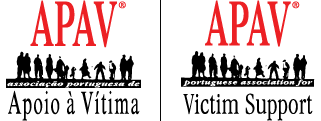
Human Trafficking
According to Article 160º of the Penal Code, the crime of trafficking persons is a practice where one provides, deliver, solicit, accept, transport, shelter or receive a person for the purpose of sexual exploitation, labour exploitation or removal of organs, by exerting violence, kidnapping, abusing of power or taking advantage of a victim’s mental incapacity. The crime is commonly related to situations where the perpetrator comes in contact with victims to offer them work in another area of the country or in another country. Once the victim arrives to the location thinking that he or she will work the way it was agreed upon, he or she ends up needing to surrender his or her personal or identification documents, and perform other work or even prostitution. He or she might also be subjected to sexual and physical assault, threats to himself and/or his family, and be forced to hand over any money that he or she has received or earned.
Even though this is a typical situation, there are other forms of human trafficking. To help identify whether a person is a victim of human trafficking, here are the following indicators:
- The person is not in control of his or her identification or travel documents
- The person had specific instructions for what to say when he or she encounters a law enforcement officer
- The person was recruited to perform a job and later forced to perform another
- Debt Bondage: part of the whole earnings of the person is taken away with the excuse to pay the costs of the trip or other costs
- The person is being forced into sexual practices
- The person has no freedom of movement
- If the person tries to escape, he or she or his or her family may suffer vengeance
- The person is threatened with the risk of deportation or other legal sanctions
- The person was assaulted or deprived of food, water, sleep, medical care and other basic needs
- The person cannot freely contact friends and family
- The person cannot freely socialise with others not can he or she freely practice his or her religion
The presence of one or more of these indicators strongly suggests the occurrence of a crime. If you are or know someone who is being exploited in such ways or recognise the occurrence of one or more of the above indicators, we highly suggest that you seek the specialised support offered by APAV/UAVM or directly report the situation to the authorities.
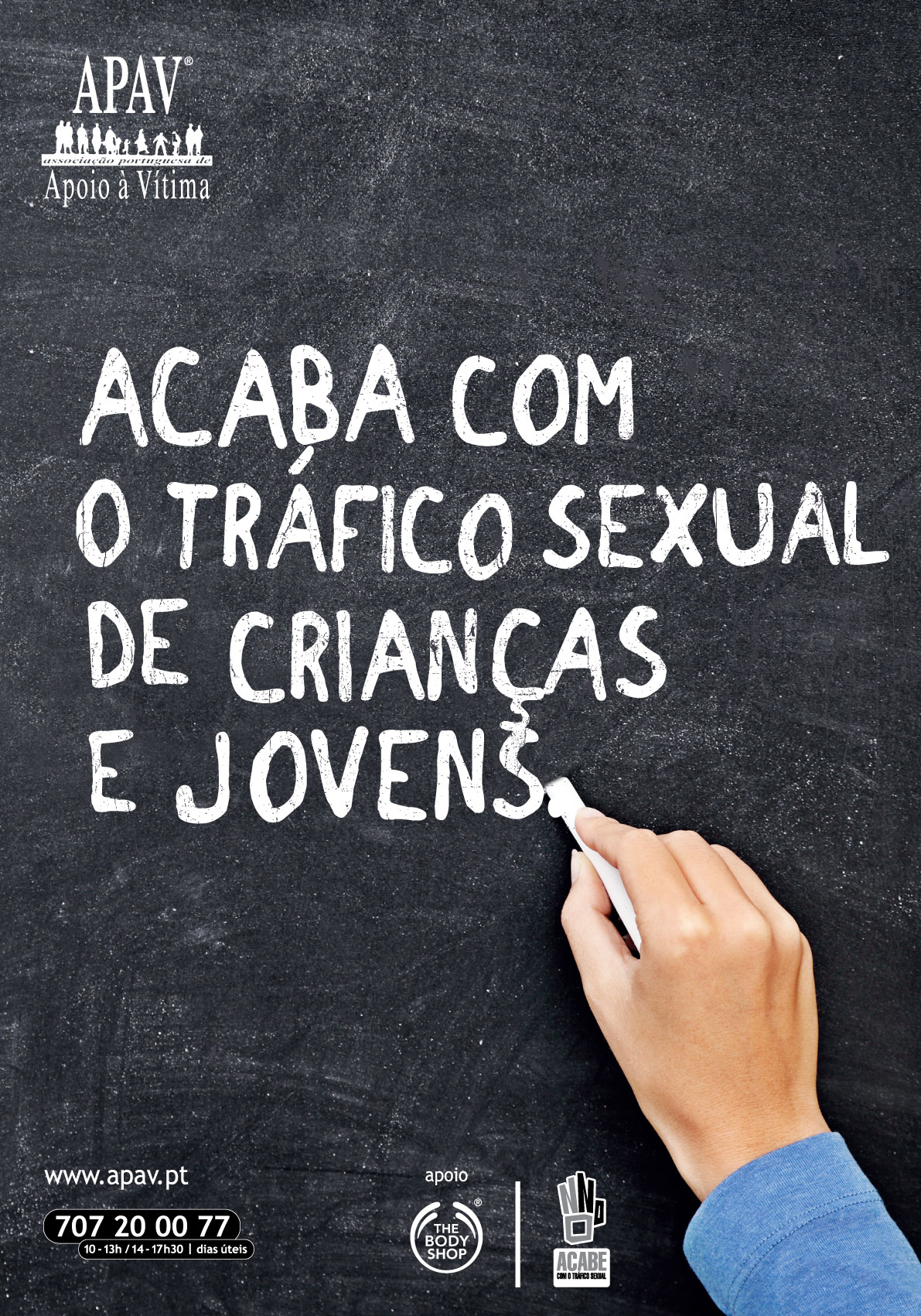
Female Genital Mutilation
Female genital mutilation consists of partial or total removal of the external genitalia of women. This is a practice that is still present in a diverse array of cultures and generally is done when the victims are still children, by the wishes of the families and social groups whose origins and beliefs support such a practice (in the case of immigrant families, for example).
Mutilation can be done in a variety of manners, like cutting off only the clitoris or completely cutting off the vaginal labia and then seaming up the vaginal cavity almost completely, allowing only a minimal amount of space for urine and menstrual flow to pass.
There are multiple reasons behind the practice of genital mutilation. Among many, it can be for reasons that are social, aesthetic (the genital area or vaginal organ is considered impure before mutilation), religious, sexual (limiting the development of sexual life of women) and economic (people who practice this ritual will receive income that guarantee their livelihood).
As a rule, the practice of female genital mutilation occurs during cultural festivities, and it is not done hygienically, as most of times the blades and other instruments used are not sterilised. Because of this and of the sensitivity of this region of the female body, it is common that victims experience excessive pain, bleeding, infections with internal reproductive organs, infections with the external area of the genitalia, urinary infections, difficulties in eliminating urine, feces and menstrual flow, complications in childbirth, difficulties and pain with sexual performance, and of course, the psychological consequences (such as depression, fear of having sexual relations, fear of having children, among many others).
In Portugal, female genital mutilation is a crime, a severe offense done against aIn Portugal, female genital mutilation is a crime, a severe offense done against aperson’s bodily integrity (as stated in Article 144º of the Penal Code), which can resultin two to ten years of imprisonment.

Partnerships
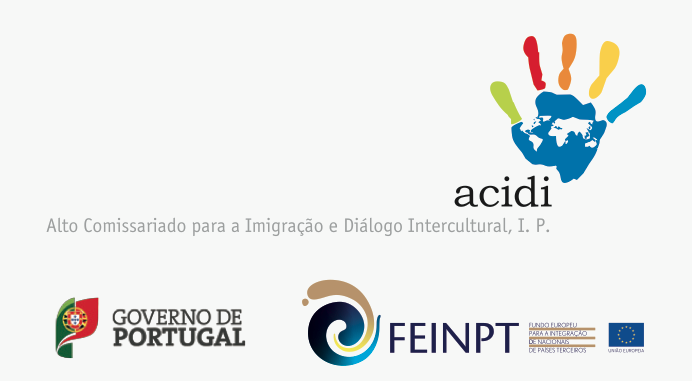
The ACIDI has the objective to promote the integration of immigrants and ethnic minorities into Portuguese society and combat exclusion, along with the application of legal tools and resources to prevent and prohibit discrimination in the practice of law based on race, colour, nationality or ethnic origin.
APAV, an institution of social solidarity and legal entity of nationwide public services, uses the recognised experience, knowledge and competence of its national network of Victim Support offices since 1990 to offer free and confidential services that provide emotional, legal, psychological and social support to victims of crime. This network of office has seen the creation of the Support Unit for Immigrant Victims (UAVM) through the protocol signed between the ACIDI and APAV in 2005.
Extended Network of Institutions for the Reception and Integration of Refugees and Asylum Seekers | Rede Alargada de Instituições para o Acolhimento e Integração de Refugiados e Requerentes de Asilo
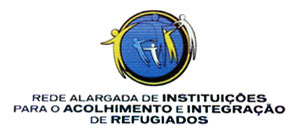
Taking into account the need to create conditions that diminish the social exclusion and discrimination suffered by refuges and asylum seekers, this extended network was created to better the system of reception and integration of this population in Portugal.
This network is comprised of 20 key public and private organisations that provide support to this specific population.
Network for Human Rights and Impeachment | Rede de Destituição e Direitos Humanos
The Network for Human Rights was created in July of 2010 in consequence of the need to combat the problems related to the destitution of basic human rights, which affects a large portion of the immigrant population in Portugal. Coordinated by Jesuit Refugee Service (Serviço Jesuítas aos Refugiados – JRS), this network in composed by organisations and individuals that have experience in defending human rights.
European Network Against Racism (ENAR)
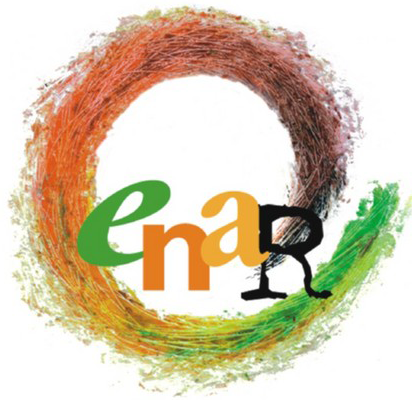
The ENAR is a European network of Non-Governmental Organisations (NGOs) working to combat racism in all Member States of the European Union. Representing more than 600 organisations, this network’s objective is to combat racism, racial discrimination, xenophobia and related intolerances. It also seeks to promote the equal treatment among European Union citizens and nationals of Third Countries, linking local, regional and national initiatives with those of the European Union.
Platform for International Cooperation on Undocumented Migrants (PICUM)
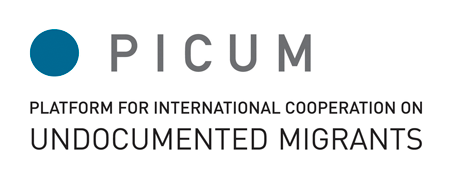
PICUM is a Non-Governmental Organisation (NGO) founded in 2001 that unites a diverse array of NGOs that work together to promote the rights of undocumented migrants in Europe and other countries. The work done through PICUM aims to directly connect local organisations that support undocumented migrants with European institutions.
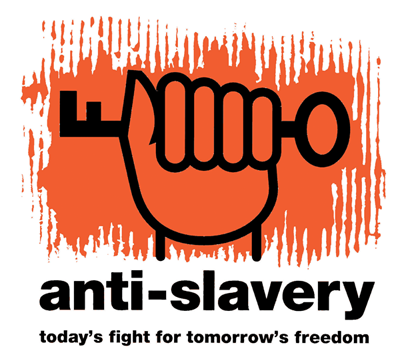
Founded in 1839, Anti-Slavery International is the oldest organisation in respect to the promotion of Human Rights. This organisation raises awareness and informs the public about the Human Rights agenda. Additionally, it supports academic research and influences government bodies and intergovernmental agencies to make human rights violations a priority in their political agendas.
FAQ: Frequently Asked Questions

What is UAVM?
UAVM stands for the Support Unit for Migrant Victims, and it was created by the Portuguese Association for Victim Support (APAV) through a protocol with the High Commission for Immigration and Intercultural Dialogue (ACIDI). This unit emerged to deal with the problems faced by immigrant victims of crime and victims of discrimination, who lacked specialised support for their situations.
What types of support does APAV | UAVM give?
The Support Unit for Migrant Victims (UAVM) works to inform you of your rights and ways to exercise them, as well as to offer psychological, emotional and social support that is free, confidential and in a safe environment. This unit also provides support in drafting complaints and other legal documents that do not require a lawyer and help with situations where language barriers and legal formalities become obstacles to the exercising of rights.
What do I need to receive help from APAV | UAVM?
UAVM offers support to migrants living in Portugal who have been victims of crime or racial discrimination. To receive support through UAVM, you would have to contact us. Our assistance is provided regardless of your residence status in the country and the existence of a criminal proceeding concerning your situation.
How can I contact APAV | UAVM?
You can contact UAVM by telephone, fax, letter, e-mail or by showing up in person, and it is preferable that you come speak with us personally. While it is advisable to book an appointment in advance, you can drop by our office on weekdays from 10:00 to 13:00 and from 14:00 to 17:30.
Address: Rua José Estêvão nº 135-A, Piso 1, 1150-201 Lisbon, Portugal
Tel: 21 358 79 14 | Fax: 21 887 63 51 | This email address is being protected from spambots. You need JavaScript enabled to view it.
Is there a possibility that my undocumented status in Portugal will be reported to the authorities when I contact APAV | UAVM?
Assistance from APAV | UAVM is given regardless of whether you are documented or undocumented in the country. Our services will never report to the competent authorities an undocumented migrant that seeks support from us.
Can I request help with the process of naturalisation or in obtaining citizenship?
The staff at APAV | UAVM are trained in areas connected to immigration and discrimination, which may involve giving guidance to individuals who are victims of crime and have a pending process to request for a residence permit or obtaining citizenship. To receive support that is specific to those areas, please contact the National Centre for Immigrant Support (Centros Nacionais de Apoio ao Imigrante – CNAI) located in Lisbon, Oporto and Faro; or alternatively, contact the Local Centres of Support for the Integration of Immigrants (Centros Locais de Apoio à Integração de Imigrantes) that are situated nearer to your residential zone (consult, www.acm.gov.pt).
FAQ: Discrimination

How can I respond to discrimination?
When an individual encounters a situation where discrimination has taken place, regardless of whether he or she is the victim, he or she should report the situation to a competent entity or authority.
In cases of crime, both crimes of discrimination and hate crimes (homicide and assault causing bodily harm) are considered public crimes, and therefore anyone can report them to the authorities (law enforcement and prosecutors).
As well, in the case of discrimination as an administrative offense, anyone can report it. In this context, there are two different situations you have to pay attention to:
- In the case where discrimination took place at a workplace or by the employer, the competent authority to make a complaint to is the Authority for Working Conditions (Autoridade para as Condições no Trabalho – ACT)
- In all other situations, complaints should be sent to the Commission for Equality and against Racial Discrimination (Comissão para a Igualdade e Contra a Discriminação Racial – CICDR), which works within the High Commission for Immigration and Intercultural Dialog (ACIDI)
What can happen to someone who is convicted in the case of discrimination?
In the case of discrimination as a crime, the defendant may be sentenced to a term of imprisonment ranging from six months to eight years.
In the case of discrimination as an administrative offence, those who are considered guilty and therefore convicted for practicing discrimination can be subjected to a fine one or five times the minimal national salary. If it was the employer who practiced discrimination, the fine will be anywhere between two and ten times the minimal national salary. If they have previously been convicted of discriminatory practices in the past, the minimum and maximum limits will be increased to double. The attempt and neglect are also punishable.
What penalties can be applied in the process of conviction?
The accessory penalties may be applied with a conviction for discrimination as an administrative offense:
- Losing or surrendering of possessions.
- The prohibition to exercise activity that requires a public title or authorisation or approval of a public authority
- Taking away the right to grant or receive benefits from an entity or public service
- The ineligibility to participate in fairs or markets
- Taking away the right to participate in auctions or tenders with which the convicted individual has a contract or public works concession
- Taking away the supply of public goods and services and the allocation of licenses or permits
- The closure of an establishment that operates on a permit or administrative authority
- The suspension of permits or licenses
In the case of hate crimes, which penalties can be applied?
Crimes against physical integrity (mentioned in articles starting from Article 143º of the Penal Code) and homicide (mentioned in articles starting from Article 131º of the Penal Code) are considered aggravated if practiced because of racial hatred and other reasons based on the religion, politics, colour of the skin, ethnic or national origin, gender and sexual orientation of the victim.
Crimes that are considered aggravated can carry a heavier penalty and range anywhere between 12 and 25 years of imprisonment in the case of a homicide, and until 12 years in the case of aggravated assault.
The company or business that I work for has a few rules made specifically for the Portuguese and specifically for the foreigners. Can they do this?
No. All employees or workers are equal before the law, and an employer cannot favour some employees over another simply because they were born in Portugal. This differential treatment is discrimination, and affected individuals have the right to file a complaint to the Authority for Working Conditions (ACT). APAV | UAVM’s staff can help you to write a complaint accordingly to the legislation in force, and send it to the competent authority.
My boss says that business is doing bad and only has money to pay Portuguese employees. What can I do?
Your employer has several duties to employees and among them is the duty to timely pay for the amount of work done and to prohibit any form of discrimination. When these duties are violated, affected employees can file a complaint to the Authority of Working Conditions (ACT). If your employer continues violating their duties even after the complaint, you can then initiate an action for the Labour Court (Tribunal de Trabalho). APAV | UAVM’s staff can help you to write a complaint accordingly to the legislation in force, and send it to the competent authority.
I went to a restaurant with my family, and the restaurant staff said that they don’t serve foreigners and that we should return to our ‘land’. What can I do?
By not being served at the restaurant, you were subjected to unequal treatment that prevented your access to a service, based on the sole reason that you belong to a particular nationality or ethnicity. Therefore, you can file a complaint to the Commission for Equality and Against Racial Discrimination (CICDR), express and detail the situation in the complaints log, and do so as soon as possible. If the complaints log is not available or provided, you can call the authorities to access it. APAV | UAVM's staff can help you to write a complaint accordingly to the legislation in force, and send it to the competent authority.
I scheduled a visit to a house that was available to be rented. When I arrived, the landlady realising that I was Brazilian told me that the house was already rented out. After leaving, I immediately called my Portuguese friend who then called the landlady and was informed that the house was still up for rent. What can I do about this behavior?
By being denied the possibility to rent the house, you were subjected to unequal treatment based on your nationality, ethnicity or colour of your skin. In a situation like this, APAV | UAVM can provide you the legal assistance to file a complaint to the Commission for Equality and Against Racial Discrimination (CICDR), as well as any psychological support you may need.
I’m a Muslim, and I wear traditional clothing that reflects my faith and religion. One day I was walking down the street in the area where I live, and I was attacked by a group of youth who said, “With those clothes you wear, you must be a terrorist!” Since then I’ve been too scared and humiliated by what happened. What can I do?
This type of aggression can be classified as a hate crime, when the perpetrators of the crime make it clear that their aggression is motivated by their preconception(s) of your religion. Given this situation, you can file a complaint to the police or prosecutor, who is then responsible for processing the crime and applying the appropriate punishment according to the law. Under this procedure, you can ask the court to place a restraining order on the perpetrators, so that you can avoid any contact with them.
If deemed necessary, you can request assistance from APAV | UAVM to address issues relating to the judicial process, as well as receive psychological support, which is a very important resource to help you deal with the aftermath and experience of victimisation.
